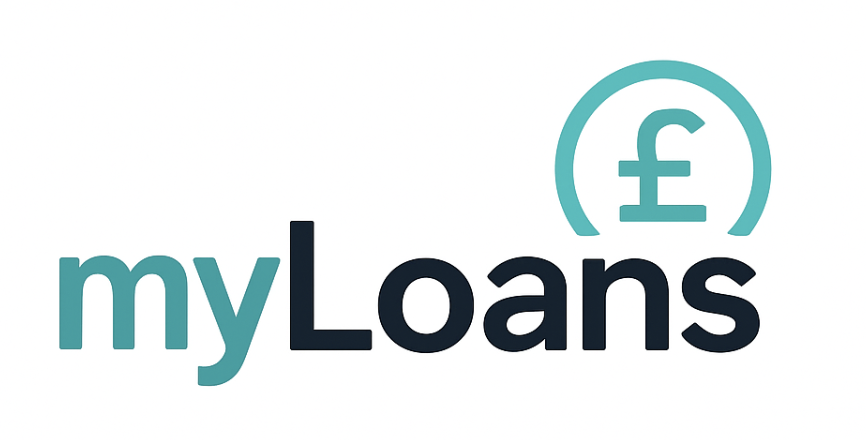Table of Contents
Introduction: The Rise of Private Healthcare Financing
Although the NHS provides free healthcare at the point of use, many UK residents now turn to private treatment for faster access, elective procedures, dental care, or fertility treatment. The problem? Costs can run into thousands of pounds, often beyond what families can cover upfront.
That’s where medical loans come in. These are personal loans (sometimes offered directly through clinics) designed to help spread the cost of healthcare over fixed monthly repayments.
This guide explains everything you need to know about medical loans in the UK in 2025 — from how they work, common uses, lenders, pros and cons, and alternatives.
What Are Medical Loans?
Medical loans are a form of personal loan used to pay for healthcare costs. They’re usually unsecured, meaning no collateral is required, but eligibility depends on your credit score and affordability.
Common uses include:
-
Private surgeries (orthopaedic, cosmetic, bariatric, ophthalmology)
-
Dental treatments (implants, orthodontics, veneers)
-
Fertility treatments (IVF, egg freezing)
-
Weight loss programmes and lifestyle procedures
-
Urgent treatments not available quickly on the NHS
How Do Medical Loans Work?
-
Application: Apply through a bank, online lender, or directly with a clinic’s finance partner.
-
Approval: Based on credit score, income, and affordability.
-
Payout: Funds are transferred to your account (or paid directly to the healthcare provider).
-
Repayment: Fixed monthly instalments over 1–7 years.
Example:
-
£6,000 fertility treatment
-
Loan at 9.9% APR over 4 years = ~£151/month
-
Total repayable ~£7,250
Typical Costs Covered by Medical Loans
-
Cosmetic surgery: £3,000–£8,000
-
Dental implants: £1,500–£3,000 per tooth
-
IVF treatment: £5,000–£8,000 per cycle
-
Laser eye surgery: £1,500–£3,000
-
Weight loss surgery: £6,000–£10,000
Interest Rates and APRs
-
Good credit borrowers: 6%–12% APR typical
-
Bad credit borrowers: 20%–49% APR
-
Clinic finance: Sometimes 0% APR for 6–12 months (but higher after promo period)
Who Provides Medical Loans in the UK?
-
High street banks & online lenders: Standard personal loans usable for healthcare.
-
Specialist finance companies: Partner with clinics for tailored medical finance.
-
Credit unions: Lower-cost options for smaller loans.
-
Guarantor loans: For applicants with very poor credit histories.
Pros and Cons of Medical Loans
Pros
-
Quick access to treatment that might not be available on the NHS
-
Spread costs over time with predictable payments
-
Improve quality of life sooner rather than later
Cons
-
Expensive if credit score is low
-
Not all lenders fund cosmetic or elective procedures
-
Can add long-term financial pressure if repayments are high
Alternatives to Medical Loans
-
0% Interest Clinic Finance Plans: Many dental and cosmetic providers offer these.
-
Credit cards: 0% purchase cards for smaller costs.
-
Savings: Cheapest option, but not always possible.
-
Health insurance: Can cover private treatment, though not usually cosmetic.
-
NHS payment options: Limited, but worth checking for certain services.
How to Improve Your Chances of Approval
-
Check your credit report for errors.
-
Avoid multiple applications — use soft searches first.
-
Stabilise finances — lower existing debts where possible.
-
Provide evidence of stable employment and income.
-
Consider a guarantor if your credit is very poor.
FAQs
Q: Can I get a medical loan with bad credit?
Yes, but expect higher interest rates. Credit unions and guarantor loans may be better.
Q: Do NHS hospitals offer loans?
No — only private clinics and external finance providers.
Q: Are cosmetic surgery loans common?
Yes — many providers directly advertise finance for cosmetic treatments.
Q: Is borrowing for medical treatment safe?
As long as repayments are affordable and the lender is FCA-regulated, yes. But always budget carefully.
Conclusion: Finance Your Health Wisely
Medical loans in the UK can provide a vital lifeline for those needing fast or specialist healthcare. Whether for fertility treatment, dental work, or elective surgery, they allow patients to spread high costs into manageable repayments.
But borrowing for healthcare should always be a considered decision. Compare lenders, calculate affordability, and explore alternatives such as 0% finance or insurance before committing. Done right, a medical loan can help you access treatment sooner — without creating long-term financial stress.
Personal Loan Debt Consolidation UK – Is It Right for You?
Juggling multiple credit cards, overdrafts, or loans can be stressful and expensive. A debt consolidation loan allows you to combine everything into a single monthly repayment, often at a lower interest rate. In 2025, UK lenders from high street banks to online...
Emergency Loans UK – How to Borrow Fast in 2025
When an urgent expense hits — like car repairs, medical bills, or a broken boiler — quick access to funds can be essential. In 2025, emergency loans in the UK provide a way to borrow fast, with some lenders offering same-day decisions and payouts. This guide explains...
Top 10 Personal Loan Providers UK 2025 – Rates, Features & Eligibility
The UK personal loan market in 2025 offers more choice than ever, with banks, supermarkets, online lenders, and credit unions all competing for borrowers. The best deal for you depends on your credit score, loan size, and repayment term — but comparing providers side...
Best Debt Consolidation Loans UK 2025 | Top Options
Managing multiple debts can feel overwhelming, especially with credit cards, overdrafts, and personal loans all charging different interest rates. A debt consolidation loan can simplify your finances by rolling everything into one fixed monthly repayment — often at a...
Best Bad Credit Loans UK 2025 – Top Lenders Compared
Having a poor credit score, CCJs, or past defaults doesn’t mean borrowing is out of reach. In 2025, several UK lenders specialise in products designed for people with bad credit — offering smaller loans, flexible repayment terms, and eligibility checks that won’t harm...
Home Repair Loans UK – How to Cover Unexpected Costs in 2025
A leaking roof, broken boiler, or urgent plumbing issue can quickly turn into an expensive problem — often when savings aren’t available. In 2025, home repair loans in the UK provide a way to spread the cost of essential fixes into manageable monthly repayments. This...
Green Energy Loans UK – How to Finance Eco-Friendly Home Improvements in 2025
Eco-friendly upgrades such as solar panels, insulation, heat pumps, and EV chargers can cut energy bills and boost property value — but they require a significant upfront investment. In 2025, green energy loans in the UK provide a way to spread the cost of sustainable...
Moving House Loans UK – How to Cover Relocation Costs in 2025
From deposits and removal vans to solicitor fees and new furniture, moving house in the UK can quickly add up to thousands of pounds. Not everyone has savings set aside to cover these costs upfront. In 2025, moving house loans in the UK provide a way to spread...
Education Loans UK – How to Fund Studies and Professional Courses in 2025
Not all education in the UK is covered by government student finance. Postgraduate degrees, professional qualifications, and private training often require self-funding — with tuition fees and course costs running into thousands of pounds. In 2025, education loans in...
Holiday Loans UK – How to Spread the Cost of Travel in 2025
Holidays can be some of the most rewarding experiences of the year, but they often come with a price tag that’s hard to cover upfront. From flights and hotels to all-inclusive packages and once-in-a-lifetime trips, the costs can add up quickly. In 2025, holiday loans...
Best Personal Loans UK 2025 – Top Lenders Compared
The UK personal loan market in 2025 is more competitive than ever, with high street banks, supermarkets, online lenders, and credit unions all offering products to suit different needs. Choosing the right provider can save you hundreds in interest and ensure...
Car Loans UK – Personal Loan vs Hire Purchase vs PCP in 2025
Buying a car in 2025 usually means more than just choosing the right vehicle — it also means deciding how to pay for it. In the UK, the three main options are a personal loan, hire purchase (HP), or personal contract purchase (PCP). Each has its own advantages,...
Home Improvement Loans UK – How to Finance Renovations in 2025
Planning a new kitchen, loft conversion, or energy-efficient upgrade can transform your home’s value and comfort — but the upfront costs are often daunting. In 2025, home improvement loans in the UK provide a way to spread renovation expenses into affordable monthly...
Bad Credit Personal Loans UK 2025 | Complete Borrowing Guide
Defaults, CCJs, or missed payments don’t have to shut you out of borrowing. In 2025, UK lenders still offer options for people with less-than-perfect credit — from credit unions and guarantor providers to online specialists. This guide explains how bad credit personal...
How to Use a Personal Loan Calculator to Plan Your Borrowing
A personal loan calculator is one of the easiest ways to understand what a loan will really cost you. By entering the amount you want to borrow, the interest rate, and the repayment term, you can see your monthly repayments and the total cost over time. This simple...

















